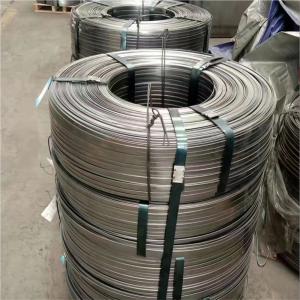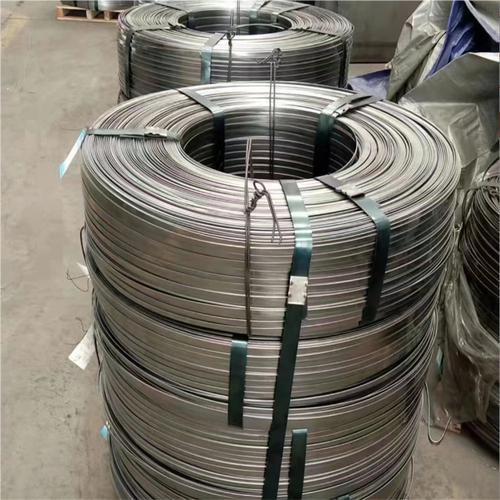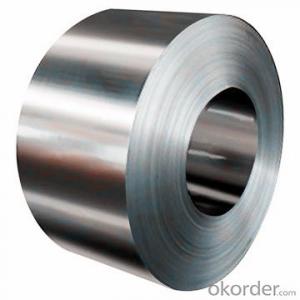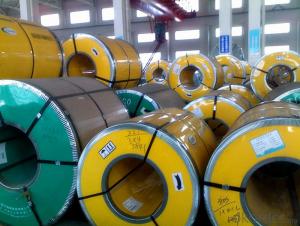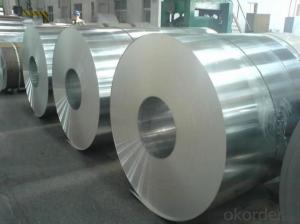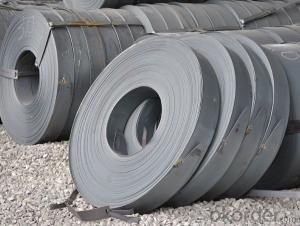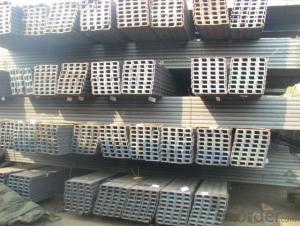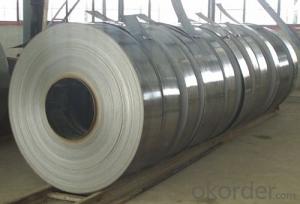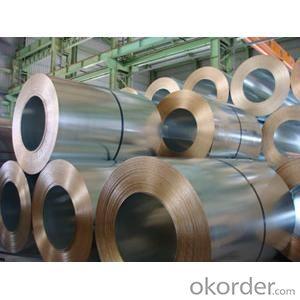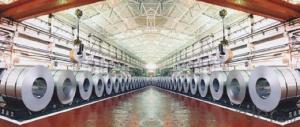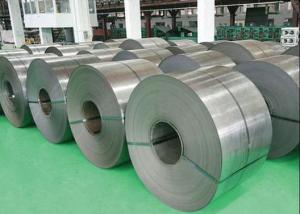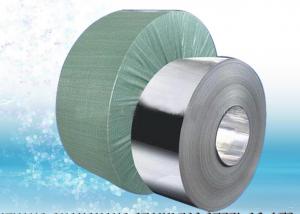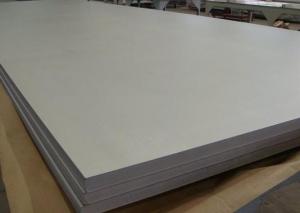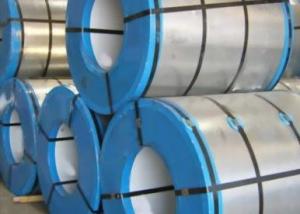Cold rolled bright annealed black steel strip
- Loading Port:
- Tianjin
- Payment Terms:
- TT OR LC
- Min Order Qty:
- 1 T
- Supply Capability:
- 2000 T/month
OKorder Service Pledge
OKorder Financial Service
You Might Also Like
Specification
Cold rolled bright annealed black steel strip
Annealed black steel strip is a type of steel strip product that has been processed through processes such as cold rolling, heating, constant temperature, and insulation.
Its main features are a shiny surface, good flexibility, and slightly higher hardness. Annealed black steel strip is commonly used in applications that require soft iron wire, such as construction, mining, chemical, welding mesh, welding hangers, and other reprocessing fields.
The main characteristics of bright annealed black steel strip include:
Excellent surface glossiness: After special treatment, the surface is smooth and has a good appearance.
Lower degree of oxidation: During annealing, the phenomenon of oxidation and decarburization is reduced by controlling the temperature and cooling process.
Widely applicable: Suitable for various industrial fields, such as mechanical manufacturing, automotive parts, building materials, etc.
Thickness: 0.25mm
Width: 36mm
Roll inner diameter: 300mm
Roll outer diameter: 650mm
Multiple specifications, supporting customization of different material widths and thicknesses.
- Q: What are the different types of edges available for stainless steel strips?
- There are several different types of edges available for stainless steel strips, depending on the specific application and desired appearance. Some common types of edges include: 1. Mill Edge: This is the standard edge produced during the manufacturing process. It has a smooth, straight finish with no additional processing or treatment. 2. Slit Edge: This edge is created by cutting the stainless steel strip to the desired width using a slitting machine. It typically has a slight burr or roughness along the edge, which can be removed through deburring or other finishing processes. 3. Rounded Edge: Also known as a round edge or rolled edge, this type of edge is created by rolling the stainless steel strip to give it a curved or rounded profile. It provides a safer and more comfortable edge, making it suitable for applications where sharp edges could pose a risk. 4. Deburred Edge: This edge is achieved by removing any burrs or roughness from the edge of the stainless steel strip. Deburring is typically done using specialized equipment or processes to ensure a smooth and clean finish. 5. Beveled Edge: A beveled edge is created by cutting the stainless steel strip at an angle, usually 45 degrees, to create a sloping or chamfered edge. This type of edge is often used for aesthetic purposes or to facilitate welding or joining of the strips. 6. Custom Edges: Depending on the specific requirements of a project or application, custom edges can also be created. These may include different profiles, finishes, or treatments to meet specific functional or aesthetic needs. It is important to consider the intended use and requirements of the stainless steel strips when selecting the appropriate edge type. The choice of edge can impact the performance, appearance, and safety of the final product.
- Q: What are the main stainless steel belt used in the industry and products?
- Judging from the industry composition of stainless steel consumption, the automotive industry is the fastest growing area of stainless steel application. Chinese household electrical appliance industry is a potential big market for stainless steel applications. In addition, the demand for stainless steel in the water industry, construction and construction industry, environmental protection industry and industrial facilities will also increase year by year. Specifically:
- Q: Can stainless steel strips be used in nuclear power applications?
- Yes, stainless steel strips can be used in nuclear power applications. Stainless steel is often used in nuclear power plants due to its excellent corrosion resistance, high strength, and ability to withstand high temperatures. It is commonly used in various components such as reactor vessels, heat exchangers, piping systems, and fuel storage containers. Stainless steel's durability and reliability make it suitable for nuclear power applications.
- Q: Can stainless steel strips be used in the production of electrical connectors?
- Yes, stainless steel strips can be used in the production of electrical connectors. Stainless steel is a highly versatile material that offers excellent mechanical properties, such as high strength, durability, and corrosion resistance. These qualities make it suitable for various applications, including electrical connectors. Stainless steel strips can be fabricated into precise shapes and sizes, allowing for the production of connectors with tight tolerances. Additionally, stainless steel's resistance to oxidation and corrosion ensures the longevity and reliability of the connectors, even in harsh environments. Overall, stainless steel strips are a viable material choice for the production of electrical connectors.
- Q: What are the common width tolerances for stainless steel strips?
- The common width tolerances for stainless steel strips typically range from +/- 0.005 inches to +/- 0.030 inches, depending on the specific requirements and industry standards.
- Q: Are stainless steel strips resistant to scaling at high temperatures?
- Stainless steel strips possess a general resistance to scaling when exposed to high temperatures. The outstanding resistance of stainless steel to oxidation and corrosion has established it as a suitable material for applications involving elevated temperatures. The presence of chromium within stainless steel generates a protective layer of chromium oxide on the surface, serving as a barrier against scaling, even under heightened temperatures. This oxide layer effectively prevents the metal from engaging in reactions with oxygen or other environmental elements, thereby preserving the integrity and appearance of the stainless steel strip. Nevertheless, it is imperative to acknowledge that the scaling resistance of stainless steel can be influenced by the specific grade and composition. Hence, the selection of an appropriate grade that matches the targeted temperature range should be executed with utmost importance.
- Q: Are stainless steel strips suitable for brewery tanks?
- Yes, stainless steel strips are highly suitable for brewery tanks. Stainless steel is a popular choice for brewery equipment due to its excellent corrosion resistance, durability, and hygienic properties. The use of stainless steel strips ensures that the tanks are resistant to rust, staining, and chemical reactions, making them ideal for storing and fermenting beer. Additionally, stainless steel is easy to clean, which is crucial for maintaining the quality and flavor of the beer. Therefore, using stainless steel strips in brewery tanks is a reliable and practical choice for the brewing industry.
- Q: Are 111 stainless steel strips suitable for wastewater treatment pipelines?
- Depending on the specific requirements and conditions of the pipeline, wastewater treatment pipelines can potentially use stainless steel strips like 111 stainless steel. Stainless steel is well-known for its resistance to corrosion, making it an ideal choice for applications that involve exposure to water and wastewater. However, the appropriateness of using 111 stainless steel strips for wastewater treatment pipelines is contingent upon various factors. These factors include the presence and concentration of chemicals in the wastewater, the temperature and pressure conditions, and the overall design and construction of the pipeline system. It is crucial to take these factors into account and seek guidance from experts or engineers who specialize in wastewater treatment pipelines to ensure the selection of the appropriate material. In certain situations, specific grades of stainless steel like 304 or 316 may be more commonly utilized for wastewater treatment pipelines due to their superior resistance to corrosion. These grades exhibit exceptional resistance to a wide range of corrosive chemicals typically encountered in wastewater treatment processes. Ultimately, determining the suitability of 111 stainless steel strips for wastewater treatment pipelines requires a comprehensive analysis of the project's specific requirements and the compatibility of the material with the operational conditions of the pipeline.
- Q: How does the price of stainless steel strips compare to other materials?
- The price of stainless steel strips can vary depending on the specific grade and size of the strip, as well as current market conditions. However, in general, stainless steel strips tend to be more expensive compared to other materials. This is primarily due to the higher cost of production and the unique properties of stainless steel. Stainless steel is known for its exceptional corrosion resistance, durability, and strength. It is also highly resistant to heat and physical damage, making it suitable for a wide range of applications in various industries. These superior properties contribute to the higher price of stainless steel strips compared to other materials. In contrast, materials like carbon steel or aluminum are generally more affordable. Carbon steel strips are widely used due to their lower production costs and satisfactory strength properties. Aluminum strips, on the other hand, are lightweight and have good corrosion resistance, but they are less strong and durable than stainless steel. When considering the price of stainless steel strips, it is important to evaluate the specific requirements of the intended application. While stainless steel may be more expensive upfront, its long-term benefits, such as extended lifespan and reduced maintenance costs, can make it a more cost-effective choice in many cases. Ultimately, the price of stainless steel strips is influenced by numerous factors, including market demand, availability of raw materials, and manufacturing processes. It is advisable to consult with suppliers or industry experts to obtain accurate and up-to-date pricing information for stainless steel strips and compare it with other materials to make an informed decision.
- Q: Are stainless steel strips suitable for roofing applications?
- Yes, stainless steel strips are suitable for roofing applications. Stainless steel is highly resistant to corrosion, making it an excellent choice for roofing materials, especially in areas with harsh weather conditions or high levels of pollution. Stainless steel strips offer durability, longevity, and low maintenance requirements, making them a cost-effective option in the long run. Additionally, stainless steel has a high strength-to-weight ratio, which means it can withstand heavy loads without compromising the structural integrity of the roof. Furthermore, stainless steel strips are fire-resistant and can effectively reflect sunlight, reducing heat absorption and energy costs. Overall, stainless steel strips are a reliable and practical choice for roofing applications.
Send your message to us
Cold rolled bright annealed black steel strip
- Loading Port:
- Tianjin
- Payment Terms:
- TT OR LC
- Min Order Qty:
- 1 T
- Supply Capability:
- 2000 T/month
OKorder Service Pledge
OKorder Financial Service
Similar products
Hot products
Hot Searches
